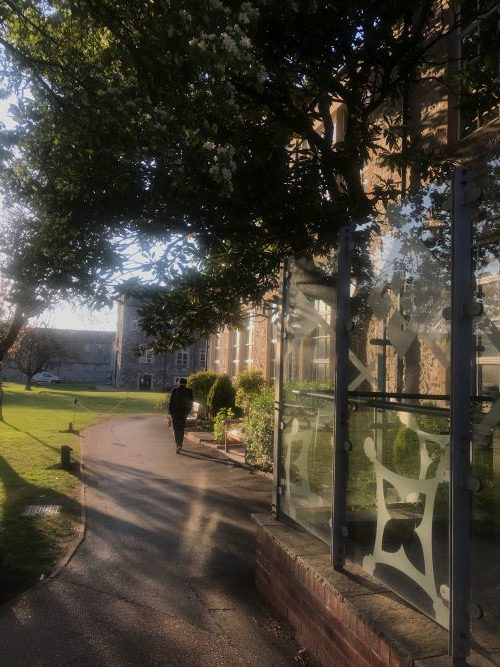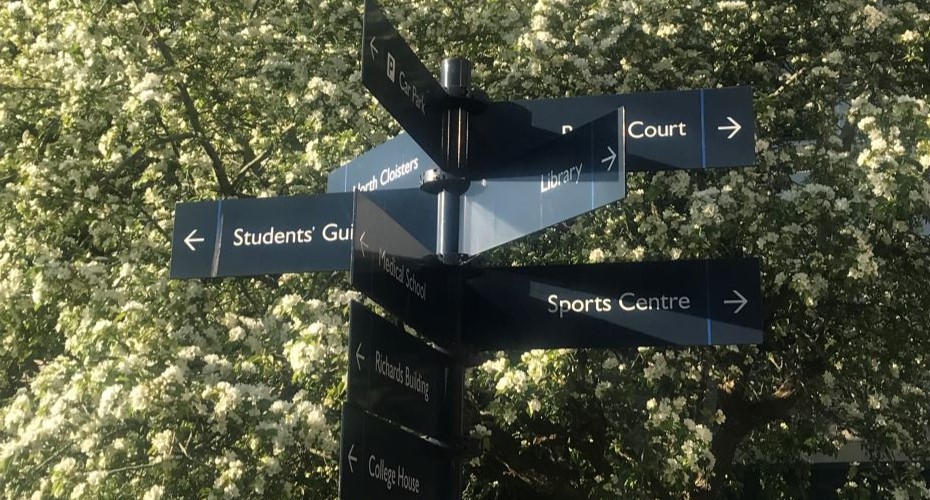Hello! My name is Raitieli. I am a Masters student studying LLM Law and I also graduated in 2024 from my Bachelors at the University of Exeter (BSc Politics and International Relations with Employment Experience Abroad). I will be sharing why moving on to postgraduate studies after doing an undergraduate degree at Exeter will benefit your career prospects, finances, benefits and your future.
The Value of Postgraduate Studies
Many students reach a point after they complete their Bachelors degree where they are unsure or anxious about the future, especially in regards to further studies. Let’s get into why doing a Masters would benefit you. I hope this provides clarity!
Pursuing a postgraduate or Masters degree is an investment not just in education, but in personal growth, career development, and your long-term potential. In an increasingly competitive and rapidly evolving global job market, having an advanced degree helps individuals stand out among peers, demonstrating not only academic capability but also perseverance, critical thinking, and a commitment to professional advancement. More than just a credential, a Masters degree adds depth to one’s knowledge, enhances one’s perspective on the subject area, and contributes to becoming a more reflective and effective contributor in any professional field.
In many industries, postgraduate qualifications are no longer optional – they’re often a prerequisite for career progression, especially for leadership or specialised roles. For example, fields such as data analytics, finance, education, healthcare, and international development frequently require or strongly prefer candidates with a Masters-level education. By acquiring a Masters degree, you can gain both credibility and versatility, empowering you to navigate complex challenges and make informed decisions with greater authority.


Why Exeter?
After studying, graduating and continuing studies at Exeter, I can say that being here has truly been a pivotal time in my academic career and years of adulthood. I have learned so much, met some of my closest friends, made connections and networks and grown in more ways than one. In this section, I will explain some of many benefits there are to continuing studies at the University of Exeter.
Financial and Logistical Advantages of Continuing Study
Two of the most practical benefits of pursuing further study at a familiar institution are financial support and logistical ease. Many universities – including Exeter – provide alumni discounts or fee reductions for returning students, which can significantly reduce the financial burden of postgraduate education. Beyond tuition, being familiar with the local cost of living, accommodation options, and transportation routes allows for better financial planning and a more stable transition into postgraduate student life.
Familiarity with the university environment – from the campus layout to the local community – provides a major head start. Knowing where to go for resources, how departments function, and who to talk to for guidance makes it easier to focus on academic goals from day one of your Masters. It removes the uncertainty and anxiety that often come with starting at a new place. Having direct access to internal staff, with whom you may have already built rapport, enables deeper conversations about courses, expectations, and research opportunities. These informal, “insider” insights are invaluable when selecting the right modules or research direction.
Socially and emotionally, the prospect of starting fresh at a new institution can be intimidating, especially after time away from formal education. Returning to a known setting eases these fears. You’re not just navigating a new course, but doing so in an environment where you already feel grounded. This sense of belonging can make a significant difference in maintaining motivation and mental well-being throughout the programme.


Course Availability and Inclusivity
Another attractive aspect of postgraduate study is the increasing flexibility and inclusiveness of course offerings. Many universities, including Exeter, are actively working to broaden access to postgraduate education by welcoming students from diverse academic backgrounds. This is particularly beneficial for individuals coming from non-numerical or non-STEM disciplines, who may have initially felt excluded from fields such as business, data science, or analytics. These programmes are often designed with foundational modules or bridging courses that ensure all students can succeed, even if they don’t have prior knowledge from a related undergraduate degree.
This inclusive approach reflects a modern understanding that career paths are no longer linear, and people may choose to change direction or explore new interests at different stages of life. As a result, there’s a growing emphasis on making postgraduate education a space of second chances and fresh starts, rather than a continuation of rigid academic tracks.
Support Systems and Academic Encouragement
Success in postgraduate education often hinges on the quality of academic and emotional support available, and I feel Exeter excels in this area. From the outset, students have access to a comprehensive welfare infrastructure that includes mental health services, learning support, and career counselling. These systems are not just passive safety nets but are actively integrated into the student experience to ensure holistic development.
Within academic departments, students often find mentors and lecturers who are deeply invested in their success. These individuals not only provide guidance on coursework and research, but also push students to go beyond their perceived limits, encouraging critical inquiry, independent thought, and academic rigor. Such support fosters not only competence but also confidence – traits that are crucial for navigating both academic and professional landscapes.
Building Community Through Postgraduate Study
The social dimension of postgraduate life is equally important, and a strong, active postgraduate society can play a key role in fostering the community which you will become a part of. These societies offer regular meetups, events, workshops, and social gatherings that provide students with opportunities to build meaningful relationships outside the classroom. For many, this creates a sense of camaraderie and belonging that enriches the academic experience.
For mature students, or those returning to education after a break, the age gap between themselves and undergraduate students can be a concern and can sometimes lead to feelings of isolation or disconnection. However, being part of a welcoming postgraduate community, where members are often closer in age or life experience, can be incredibly reassuring. These connections allow students to share common challenges and milestones, whether related to coursework, careers, or personal development. The sense of solidarity that emerges from such shared experiences makes the journey feel less solitary and more supportive.


The Value of International Postgraduate Study
For international students, pursuing a postgraduate degree in the UK is more than just an academic endeavour – it is a life-changing opportunity. Admittedly, the visa process and immigration logistics can be challenging and time-consuming. However, the University of Exeter has an international student support team who can help you, and the long-term rewards far outweigh these initial hurdles. Studying in the UK opens the door to a rich cultural experience, allowing students to immerse themselves in a new environment, explore historic English towns and landscapes, and gain a broader worldview.
Exeter in particular offers a unique blend of academic excellence and quality of life. Its location in Devon provides access to nature, outdoor activities, and a peaceful atmosphere, ideal for focus as well as relaxing outside of your course. At the same time, the University maintains strong links with industry and professional networks, offering internship opportunities, career fairs, and workshops designed to help students transition into the workforce.
For international students at Exeter, it also presents a chance to build lasting relationships, both personal and professional. Living abroad often leads to a deeper understanding of who you are, and who you want to become. It allows for the development of soft skills, such as adaptability, resilience, and cultural intelligence – all of which are highly valued in today’s global job market. It can truly feel like a second chance at life – a fresh chapter to grow, explore passions, and rewrite your own story.
Whether it’s about expanding your skillset, rediscovering your academic interests, or simply making memories that last a lifetime, Exeter provides the perfect environment to live fully, learn deeply, and grow authentically.



Conclusion
For many students, the decision to continue from undergraduate to postgraduate study isn’t just about chasing another qualification – it’s about building a future with more purpose, direction, and possibility. At the University of Exeter, that journey feels not only achievable, but deeply worthwhile. There’s a certain comfort in returning to a place you already know – where the campus feels familiar, the staff are approachable, and the support systems are already in place. That sense of continuity removes a lot of the fear and uncertainty that can come with change.
At the same time, postgraduate life at Exeter opens up something entirely new. It’s a chance to connect with people who share your drive, your questions, and your hopes for the future. There’s a genuine sense of community among postgrad students – especially for those who may be coming back after a break, changing paths, or even arriving from abroad. Whether it’s through course discussions, postgraduate societies, or simply meeting others in your age group, it’s reassuring to find a space where you belong and where you’re encouraged to grow.

